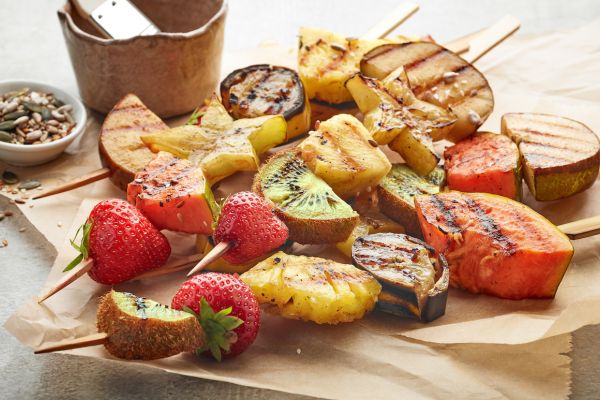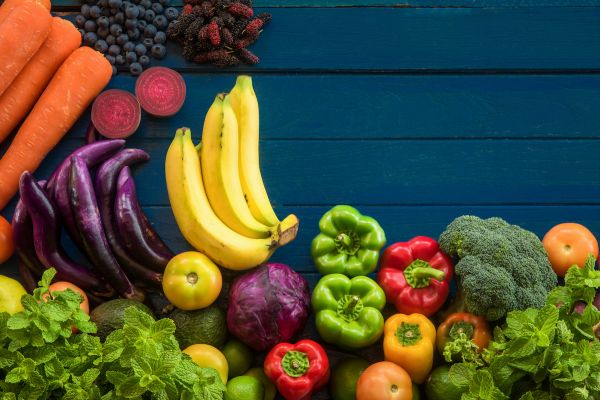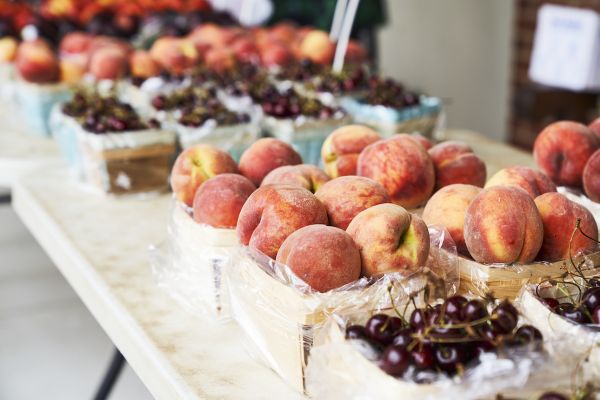Summertime is a bounty of delicious foods – grilled entrees, fresh fruits and vegetables from roadside stands, refreshing beverages in all the colors of the rainbow. While it might be tempting to overindulge once in a while, eating a balanced diet is important, especially for people going through cancer treatment or those in survivorship.
Red and processed meats have been linked with cancer, with the World Health Organization classifying processed meats as a “definite” cause of cancer, and red meat listed as a “probable” cause. In particular, these products have been linked with an increased risk of gastrointestinal cancers, especially of the colon and rectum, but the reasons why aren’t clear. Researchers have been able to observe the correlation but don’t fully understand how it works.
Overall, limiting the consumption of processed meats is probably not a bad idea. Try substituting other fresh meats, such as chicken or fish, for a few of your red and processed meat meals throughout the week.
Also, if grilling meat to help reduce fat, keep in mind that grilling meats at high temperatures results in the formation of heterocyclic amines (HCAs) and polycyclic aromatic hydrocarbons (PAHs). These are chemicals that may increase the risk of cancer. Avoid or limit these compounds by cooking at a lower temperature for more time, trimming excess fat from meats and scraping off any charred pieces.
Forego the alcohol for a refreshing mocktail
Alcoholic beverages are a common feature at picnics, parties and barbecues, but they should be enjoyed in moderation. Excessive drinking can contribute to serious health risks, including cirrhosis of the liver. While not a kind of cancer itself, cirrhosis is scarring of the liver, a condition that can increase the risk or likelihood of cancer. A relatively small percentage of cirrhosis cases in the United States, around 20%, is caused by excessive drinking alone, while other people contract cirrhosis from viral hepatitis combined with excessive drinking.
Instead of reaching for that glass of wine or beer, consider a mocktail or water flavored with fresh fruit. These cut down on calories and sugar in addition to being alcohol-free and are just as tasty. Resist going for a sugar-sweetened beverage, like pop, sweet tea, lemonade or sweetened coffee beverages, as they can contribute to excess sugar in the diet which can lead to weight gain, and obesity is one of the chronic health conditions that can also lead to an increased risk of breast and colorectal cancer.
Even more nutrition information
Get more healthy eating tips from Roswell Park's Nutrition Department.
Learn MoreEnjoy fruits and vegetables
Summer is the best time to find a bounty of fresh fruits and vegetables just about anywhere, from farmers markets to grocery stores to farm stands on country roads.
At least two-thirds of your plate should contain vegetables, fruits, whole grains and beans, leaving one-third (or less) for meat or poultry. Plant-based foods contain vitamins and minerals, they’re higher in fiber and they’re a good source of phytochemicals, naturally occurring chemicals found in plants that can play a role in cancer prevention. Phytochemicals found in fruits and vegetables also slow down the growth of cancer cells. Plus, eating a diet high in fruits and vegetables, along with whole grains and legumes, can help maintain a healthy weight.
Water, water, everywhere
Most importantly, remember to drink plenty of water, especially as the temperatures get higher. Dietitians recommend drinking three quarts of water daily, or more if cancer treatment causes fluid loss or if you spend a lot of time outside on hot and humid days. A glass or bottle of water should be within reach at all times, because feeling thirsty is an indication of mild dehydration.



